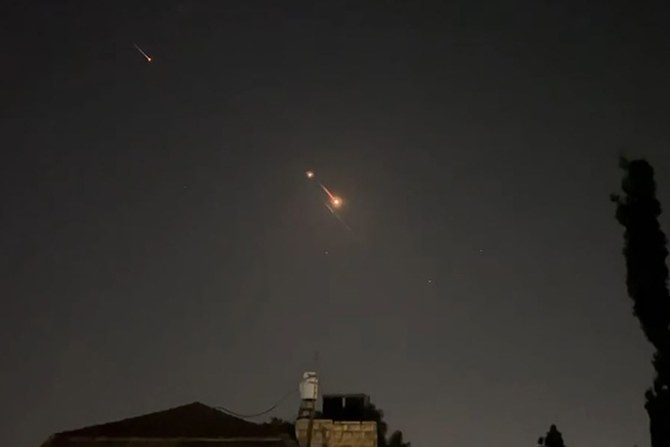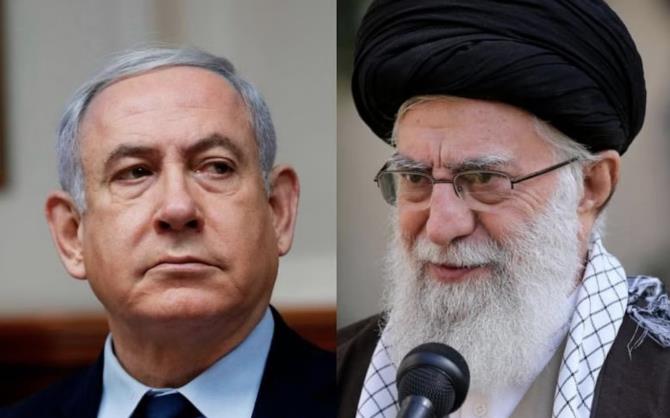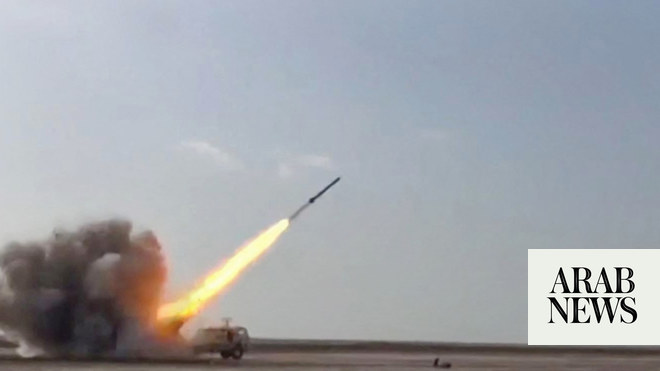
The night of April 13-14, 2024, has taken up a distinguished position in the memory of the region. It has been a long time since newsrooms were so fervent to learn of the latest developments. Perhaps the night of March 19-20, 2003, when American rockets rained down on Baghdad to oust Saddam Hussein, comes close.
The events of the weekend were more exciting and dangerous because the outcome of the March 2003 night was a foregone conclusion: the American military machine was not going to launch a war it was going to lose.
The new night was exciting, dangerous and open to dire consequences. It exposed the fragility of the Middle East and how vulnerable it is to sliding into the abyss. It closed airspaces and airports. The people of the Middle East witnessed drones and rockets streak across the sky. On the other side, jets and rockets took off to take down the roaming drones and missiles and prevent them from reaching their targets. It was a long night that kept awake the leaders of nations and armies, and “generals” of armed factions and militias.
It was not the night of the “crushing blow” that has been whispered about in the command centers of the so-called resistance forces over the years. Its goal was to rain down rockets on Israel from Iran and countries where it holds sway. The attack did not lead to an all-out war or a major collapse. It was a reminder of Iran’s ability to set a precedent that it can launch a direct attack against Israeli territory.
You knew something major was taking place when the master of the White House cut short his vacation to meet with top officials
Ghassan Charbel
It was not the night of the major conflagration or crushing blow. But the night underscored that a major change has taken place to the rules of the old game. It has raised questions about the new “rules of engagement.” The truth is, the events of the night began to unfold before darkness fell. You knew something major was taking place when the master of the White House cut short his vacation to meet with top officials. The world sat up to watch and stayed up all night.
The current month started with a fiery message that paved the way for the new night. On that day, an adventurous player called Benjamin Netanyahu made a very dangerous decision. Seven important officers from Iran’s Revolutionary Guards were meeting in Damascus. He saw this as an unmissable opportunity. He was not deterred by the sovereignty of the Iranian consulate where they were meeting. He destroyed the consulate. It was a difficult decision that rivaled that of Donald Trump when he ordered the killing of Qassem Soleimani near Baghdad airport.
Netanyahu’s decision raised several questions. Had he grown tired of trading blows with proxies, so he decided to summon to the ring the boxer who was controlling them? Had he chosen to lure Iran out of the shadows and into a direct confrontation? Did he want to remind the West that the existential threat to Israel comes from the Revolutionary Guards of the supreme leader, not Yahya Sinwar and his tunnels? Did he choose to take the risk of igniting a major fire instead of preoccupying himself with rockets from Yemen, drones from Iraq and clashes with Lebanon? Had he set up an unavoidable trap for Iran?
It was going to be difficult for Iran to refrain from retaliating to the consulate attack. Netanyahu challenged its image before the internal Iranian scene and the region. On the other hand, Iran does not want to wage an open war with Israel because the US could not possibly remain on the sidelines if that were to happen. Iranian officials weighed up their options for about two weeks and the response was introducing to the equation Iran’s ability to directly attack Israel without sparking a war.
Politicians and military officials will spend a long time explaining the meaning of the messages that were delivered that night. Iran delivered a message to Israel and another to the US, saying it did not want to expand the war.
The night of rockets and drones showed that Israel enjoys firm Western protection against challenges that may target it
Ghassan Charbel
On the night of rockets and drones, the US delivered a clear message to Israel that it might criticize Netanyahu’s approach in Gaza, but that does not mean it will abandon Israel or be lenient with whoever targets its security. The US was not the only Western power that downed the Iranian rockets and drones. Britain and France were also involved that night.
The American message became a Western one. It set clear limits to any Iranian attempt to even think about dealing Israel a direct painful blow. The night of rockets and drones also delivered a military message that underscored the Western and Israeli technological superiority over Iran’s military technology. That sort of message must also give Hezbollah in Lebanon something to think about.
On the political and diplomatic levels, the night of rockets and drones showed that Israel enjoys firm Western protection against challenges that may target it, whether from Gaza or Tehran. It demonstrated that Israel’s security was not open to discussion in Western circles, no matter their reservations and disappointments regarding Netanyahu’s approach to Gaza, peace and the two-state solution.
The question raised after the consulate attack was clear. Should Iran retaliate and target Israeli territory? How and to what extent? The same questions were raised after the Iranian attack. Will Israel target Iranian territory? How and to what extent?
Washington backed Netanyahu unquestioningly in the wake of the Iranian attack, but it was quick to clarify that it does not support an Israeli response and would not take part in it should it happen. The wait will be loaded with questions.
Can Netanyahu sit back and not retaliate? What about the hawks in his government? Should he heed the American advice and what price might he extract from them? Will he ask for military and economic support so that he could run rampant in Rafah or will he ask that the two-state solution be downplayed as a mandatory step going forward? Will he ask that the balances and relationships in the region be reshaped? Will he ask for an approach that would bring an end to the confrontation, which is in its seventh month and has become a costly war of attrition, with reports saying the night of rockets and drones cost Israel about $1 billion?
We must now wait and see what lessons the combatants will derive from the night of questions and fiery messages streaking across the skies of the Middle East.
Ghassan Charbel is editor-in-chief of Asharq Al-Awsat newspaper. X: @GhasanCharbel
This article first appeared in Asharq Al-Awsat.












